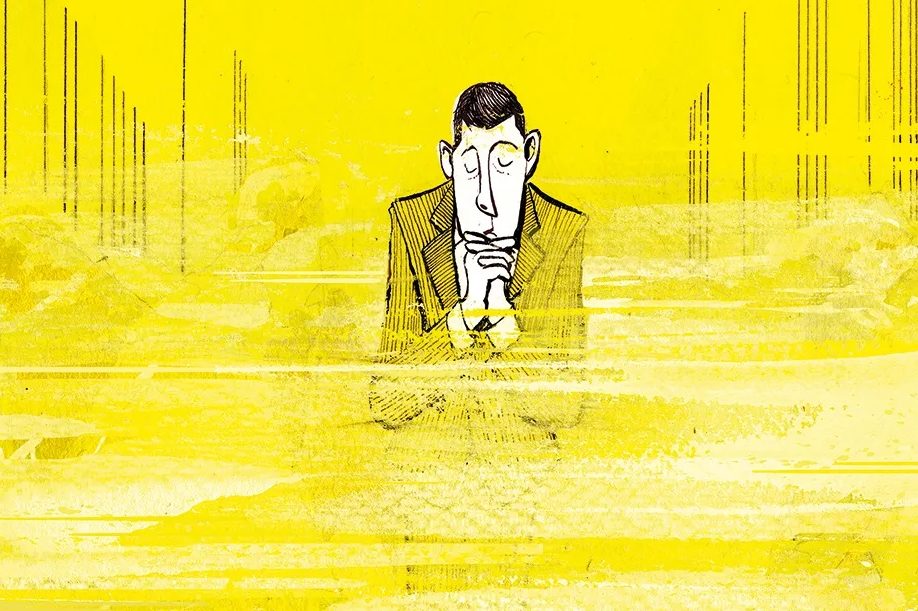Exactly two years ago, on May 8, 2018, Bari Weiss published an essay in the New York Times titled ‘Meet the Renegades of the Intellectual Dark Web’. Describing a subculture of liberals, conservatives and disaffected leftists who were engaging in conversations about free speech, left-wing censoriousness and un-PC subjects like sex differences and transgenderism, Weiss described three common features of these different people:‘First, they are willing to disagree ferociously, but talk civilly, about nearly every meaningful subject… Second, in an age in which popular feelings about the way things ought to be often override facts about the way things actually are, each is determined to resist parroting what’s politically convenient. And third, some have paid for this commitment by being purged from institutions that have become increasingly hostile to unorthodox thought…’The article was smothered in cloying pretension. The name might have been coined jokily by the mathematician Eric Weinstein, but once it was affixed to the subculture it became absurd. Sex differences and transgenderism are controversial subjects, no doubt about it, but the intellectual equivalents of the drugs and guns that are traded on the Dark Web are not profiled in the New York Times. Also, somebody had made the well-meaning decision to photograph the likes of Weinstein, Sam Harris and Dave Rubin in night-time shots that made them look like the supporting cast of a dirt cheap neo-noir independent film.Soon, the ‘web’ in the name evoked not the Dark Web but a spider’s web. Curious browsers were trapped in long-winded podcasts, paralyzed by anti-leftist platitudes, and gobbled up by ‘classical liberalism’. As I noted in my review of Dave Rubin’s book, there was too much talking about talking about ideas, and too much using free speech to talk exclusively about free speech. There was no systemization or institution-building but a constant stream of monotonal discourse.But am I being too cynical? Is it not a failing of opinion columnists that we live to drag people down and not to build them up? Perhaps. So, I wanted to look for the good in the ‘IDW’ — and how better than to read a left-wing analysis of the phenomenon!Michael Brooks begins his study of the ‘Intellectual Dark Web’, Against the Web, by defining the ‘IDW’ as a ‘group of men’. Like most political movements and subcultures, it is largely male. Any sensible analysis of the phenomenon, however, would place Heather Heying, Christina Hoff Sommers, Claire Lehmann, Ayaan Hirsi Ali and others in its sphere. Brooks wants it to be a ‘group of men’ because it suits his ideological framework. Perhaps the Intellectual Dark Web has made people more skeptical about this kind of dull and disingenuous identity politicking, which is good.Such annoying sleights of hand come thick and fast throughout Against the Web. We learn, when Brooks writes about Ben Shapiro, who somehow got a column as a teenager, that conservatives have an ‘obsession with teenage prodigies’ that ‘never ceases to amaze’. Why, yes, that is just a conservative obsession, and Greta Thunberg’s youth is incidental to her fame. Later, he says, ‘young, angry white men have historically been a pretty dangerous group’. More dangerous than others, huh? Perhaps Brooks does not mean that, but the ‘IDW’ has at least raised awareness that this is one of the only groups one can problematize in polite society without the whiff of scandal.Brooks does land some powerful shots. Writing about the psychiatrist-cum-self-help guru Jordan Peterson, Brooks justly notes the absurdity of railing against alienation and atomization while tip-toeing around the alienating, atomizing forces in consumer capitalism. This is a fair point: Jordan Peterson should have read Christopher Lasch. But Brooks blames all social evils on market forces. Families are collapsing and birth rates are dropping because of ‘relentless anxiety and undercompensation’. Really? That’s it? African people have a lot more kids and I don’t think that they are better compensated than Americans, Europeans and East Asians. By the time Brooks segued into talking about how ‘everything from air pollution to homelessness’ should give us ‘psychic anguish’ rather than the psychological ‘focus on the self’, I was fanning my armpits with my smartphone. Of course,those are important subjects, but informing sad and lonely men that the cure for what ails them is far left activism feels more opportunistic than anything Peterson says. For all of JP’s limitations and eccentricities, at least the man gave good advice like ‘read the Bible’ and ‘don’t waste your time watching porn’. It’s not exactly Aristotle, but there’s something to work with there.Brooks has a problem in that he wants to write a funny book dunking on Dave Rubin and Jordan Peterson and a sincere left-wing internationalist manifesto. Too often — without wanting to sound like Stefan Molyneux — he relies on ownage rather than argumentation. A passage criticizing the belief in IQ and innate intelligence gets side-tracked by a long-winded and pointless digression about how ‘IDW’ idol Christopher Hitchens rejected the concept — because apparently they think he was omniscient — and Brooks never gets around to addressing twin studies or predictiveness, or explaining how, if IQ is defended by ‘white commentators trying to find “scientific” cover for their racial attitudes’, they suggest that Jewish and Asian people have, on average, higher IQs than white people. Brooks is also vague enough about his own ideals that they can escape the kind of scrutiny that he applies to others. We find him wringing his hands about ‘pressing threats to democracy in today’s world…represented by Singapore’ and Hungary, but also praising the ‘noble revolutionary tradition’ represented by Cuba. I’m not going to huff and puff about the Castros’ fiefdom, which is hardly the worst place in the world to live, but don’t howl about threats to democracy and then get teary-eyed about a state that has been ruled by two brothers for 60 years. I hope the IDW has tarnished the romantic image of revolutionary leftism in academic and cultural spheres.Nonetheless, I have to admit that Against the Web does offer good advice to Brooks’s comrades. Quoting the late Mark Fisher’s essay ‘Exiting the Vampire’s Castle’, Brooks criticizes the left’s reliance on shame-based moralizing, which has indeed served to drive a lot of left-wing men and women rightwards. Riffing on the great Trinidadian Marxist C.L.R. James’s respect for European culture, Brooks also promotes cultural cosmopolitanism over a knee-jerk hostility towards ‘cultural appropriation’. These are great suggestions and I cynically hope that no one listens to him. But I suspect that they will not because left-wing politics, even more than right-wing politics, is so based on grievance, and on acquiring status by displaying grievance. You can laugh at Jordan Peterson’s rather cack-handed criticisms of postmodern Marxist feminists or whatever but at least his work is founded on the premise that nature is harsh and constrained. If you doubt this, then resentment is a natural consequence.The ‘Intellectual Dark Web’ has fractured now. Sam Harris is still droning on his podcast with more soporific power than a packet of Restoril. Rubin has become an overblown Fox News personality. God bless Jordan Peterson, wherever he is. The phenomenon left lots of people with a lot of questions. If we want them to have answers, well — now is our chance.
An autopsy of the Intellectual Dark Web
Two years on from Bari Weiss’s New York Times essay, there are still several unanswered questions

Jordan Peterson
Exactly two years ago, on May 8, 2018, Bari Weiss published an essay in the New York Times titled ‘Meet the Renegades of the Intellectual Dark Web’. Describing a subculture of liberals, conservatives and disaffected leftists who were engaging in conversations about free speech, left-wing censoriousness and un-PC subjects like sex differences and transgenderism, Weiss described three common features of these different people:‘First, they are willing to disagree ferociously, but talk civilly, about nearly every meaningful subject… Second, in an age in which popular feelings about the way things ought to be often override facts…
Comments
Share
Text
Text Size
Small
Medium
Large
Line Spacing
Small
Normal
Large
























